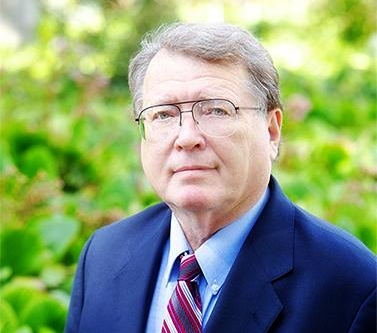Drone Use Raises Serious Questions

MIDDLEBURY, Vt. – George Moore, a nuclear scientist and attorney with expertise in the area of aviation law, told an audience at Middlebury’s Rohatyn Center for Global Affairs on January 13 that drone use in the United States is in legal flux right now.
There are no regulations that cover drones specifically, Moore said, and he called for stricter measures on the domestic use of drones. He cited the Federal Aviation Administration’s (FAA) estimate that there will be 30,000 unmanned aerial vehicles, or UAVs, in use in the United States within the next 20 years, and he termed it a “scary” proposition.
“The FAA is supposed to use the Administrative Procedures Act to propose and develop regulations for all flying aircraft, but they haven’t been doing that for drones. They have been winging it and making it up on the fly,” Moore said, noting the lack of regulations hasn’t prevented the FAA from “enforcing things” by taking citizens to court.
For an audience of about 50 students and faculty gathered in the Robert A. Jones ’59 House, Moore, the scientist-in-residence at the James Martin Center for Nonproliferation Studies at the Middlebury Institute of International Studies at Monterey, reviewed several court cases pertaining to the use of drones (or other forms of aerial surveillance) and remarked: “It’s a moving target of what’s considered reasonable use of drones right now.”
There is a common misperception that drone use below 400 feet is not controlled by the FAA, Moore said. The reality is that the FAA has authority over all navigable airspace, including any aircraft operating under 400 feet.
“There are guidelines that cover model aircraft used as a hobby, but not for drones” used for commercial purposes such as photography or surveillance, which raise 1st Amendment issues for news media and 4th Amendment issues for law enforcement.
In his wide-ranging talk called “Attempts To Control Drone Use,” Moore also discussed drone deployment by the U.S. military abroad and said there are three purposes for drones overseas: tactical use, surveillance, and assassination. When a member of the audience questioned Moore’s use of the term “assassination,” he countered: “These are not rescue missions. It’s assassination,” and he supported his assertion with numbers.
There have been 500 targetted assassinations by drones, and 3,700 people killed in drone strikes, he said. “These numbers may be a little bit exaggerated, but there are large numbers of people being killed. And this is serious. How does the U.S. Government justify this? They justify it under Article 51 of the U.N. Charter.”
Moore, who is teaching a Winter Term course at Middlebury College called Drones and Surveillance, acknowledged that drone use “opens a lot of issues,” “will play out in the courts” and legislative bodies, and “will play out in international” circles too. He pointed to Vermont’s House Bill 540, an act related to regulating the use of drones, which was proposed in the last legislative session but never made it out of committee.
In response to a student’s question about Jeff Bezos’s proposed use of drones to deliver packages for Amazon, Moore called it a “clever idea” to generate publicity, “but I don’t predict that we will have drones delivering packages” anytime soon.
– Written by Robert Keren

